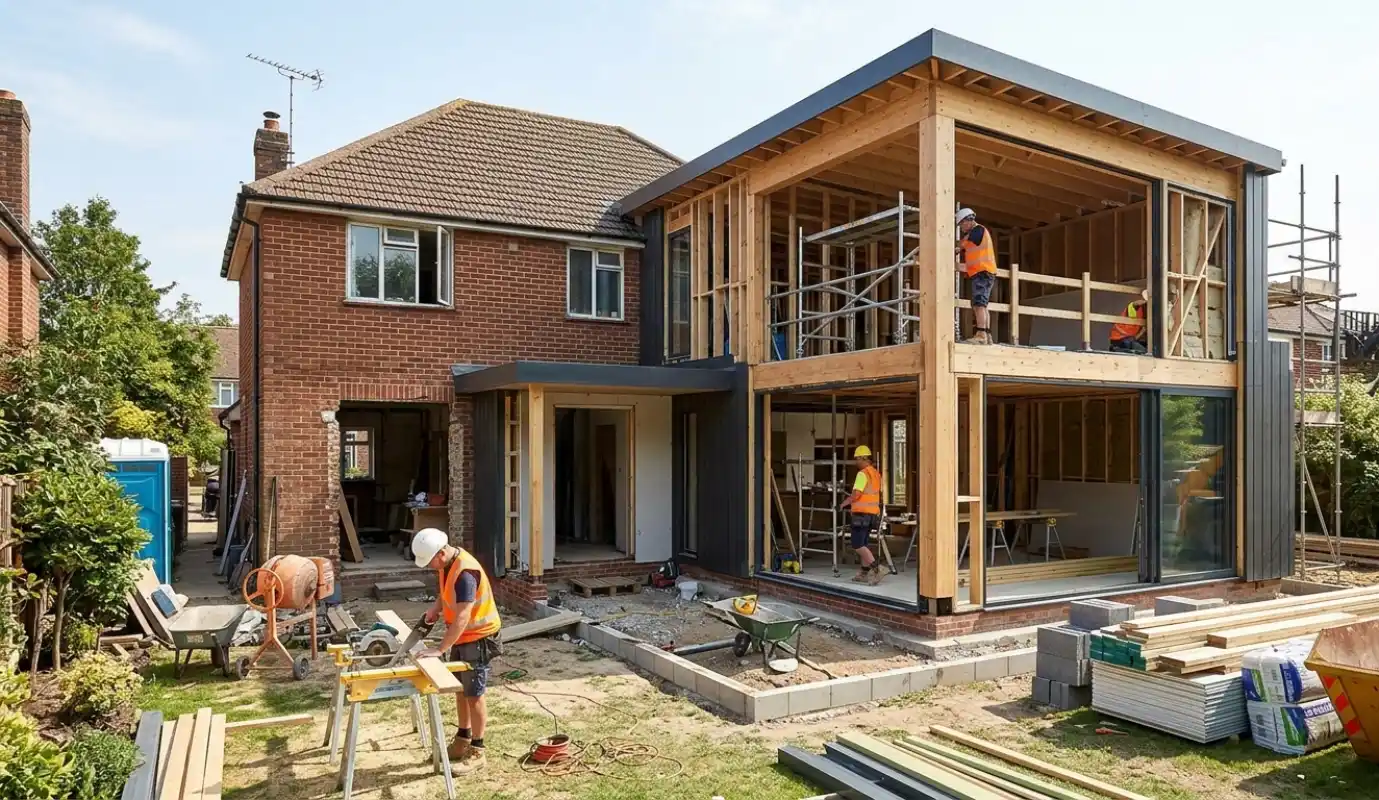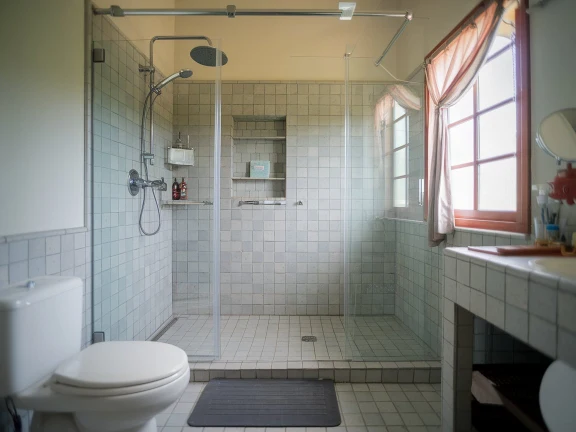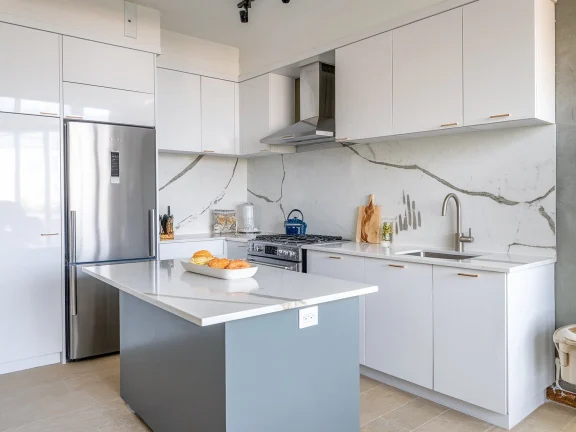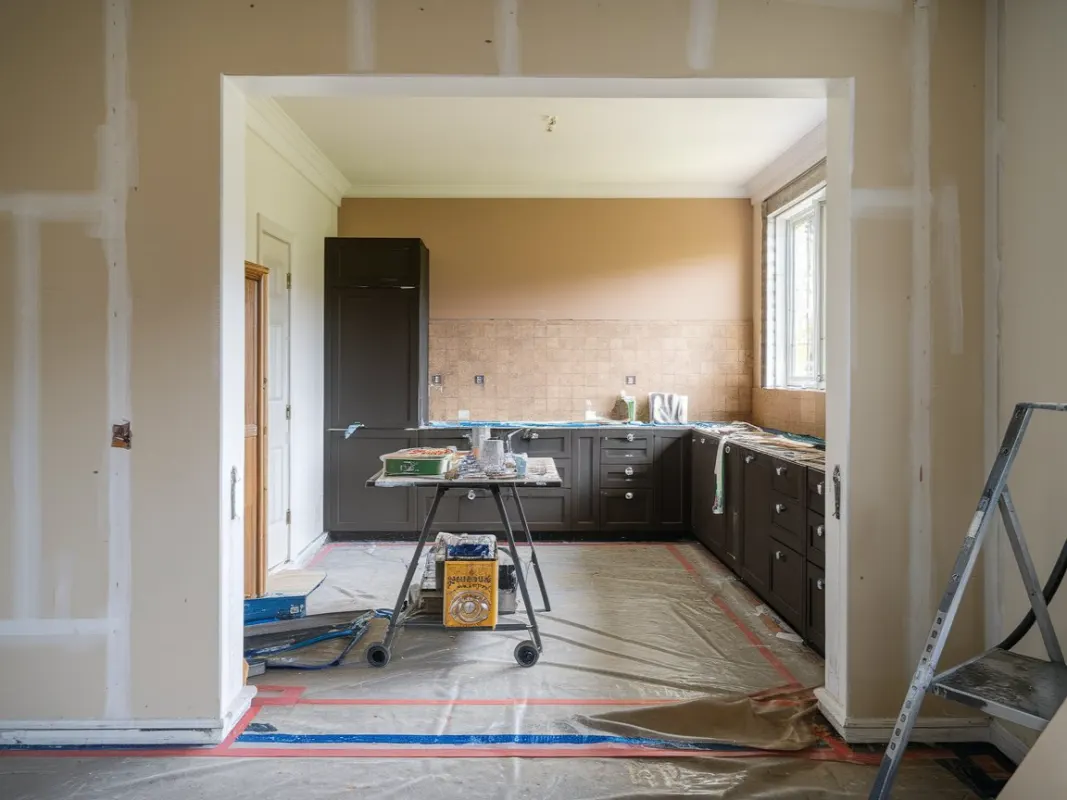The process of home renovation becomes stressful when you need to file insurance claims. The insurance remodeling process requires complete understanding to achieve maximum coverage benefits during both disaster recovery and regular space updates. This insurance remodel guide will lead you through insurance claim procedures while helping you select appropriate remodeling contractor insurance to achieve a seamless renovation experience.
Table of Contents
ToggleWhat Is Insurance Remodeling?
Insurance remodeling describes home modifications carried out after insurance claims when properties sustain unexpected damage from incidents such as fires, floods or storms. The process of home insurance renovation depends on policy type and damage characteristics as well as the insurer’s requirements. Your ability to understand insurance processes will help you avoid delays and reduce financial strain and emotional stress.
Why You Need This Guide
- Avoid Pitfalls: Your renovation project faces potential delays and risks when you make mistakes in insurance claims.
- Maximize Coverage: Discover the methods to maximize policy coverage for your remodeling project.
- Peace of Mind: The guide provides detailed instructions to help your disaster recovery renovation proceed without problems.
What Types of Home Remodeling Are Covered by Insurance?
Home renovation projects do not always receive insurance coverage. Typically, home remodeling insurance policies cover:
Damage Repairs: Insurance policies provide coverage for renovations that occur after disasters such as floods, fires or storms.
Necessary Upgrades: Local regulations force homeowners to perform necessary code-compliance upgrades.
Structural Repairs: The policy covers expenses to repair walls, roofs and foundations when they sustain damage.
Temporary Living Costs: You must pay expenses when you need to move out of your house while renovations are being done.
Pro Tip: Verify your insurance policy details to learn about both its coverage restrictions and limitations.
How Do I Navigate the Insurance Claims Process for Renovations?
The claims process for home renovation insurance can seem daunting, but breaking it into steps makes it manageable:
- Assess the Damage: Record all damage through documentation including digital photographs and videotape.
- Contact Your Insurer: Notify your insurance company promptly.
- Hire an Adjuster: An independent adjuster delivers damage assessments without any personal bias.
- Get Estimates: You should obtain precise quotes from contractors who hold licenses to handle insurance claims.
- Submit Your Claim: Send your insurer all required documentation needed to process your claim.
- Approve Plans: Your insurer needs to collaborate with you to finalize renovation plans.
- Start Renovations: Choose a dependable contractor to start your remodeling work.
Choosing Insurance Claim Contractors
The selection of an appropriate contractor stands as a vital requirement for achieving successful disaster recovery renovations. Here’s what to look for:
Experience with Insurance Claims: Professional construction firms trained in insurance document structures create straightforward information processing.
Proper Licensing and Insurance: Your contractor must have insurance for remodeling contractor to safeguard against legal responsibility.
References and Reviews: Review their standing by asking clients from the past.
Detailed Contracts: Obtain precise documents as part of your binding agreements which detail the project tasks together with payment breakdowns.
Maximizing Insurance Coverage for Remodeling
To get the most out of your home renovation insurance claims:
- Know Your Policy: You must understand which parts of your coverage apply and which parts do not.
- Document Everything: Maintain comprehensive records for all communications together with created estimates and obtained receipts.
- Negotiate if Needed: You should not accept a first offer which fails to cover the necessary repair costs.
- Work with Experts: You should hire an insurance adjuster or attorney when disputes emerge.
Home Insurance Renovation Process
The process of renovating after flood or fire damage often involves:
Emergency Repairs: Respond to instant crisis situations by tackling water extraction work plus performing board-ups.
Claim Approval: You must obtain permission from your insurer before beginning extensive renovation work.
Permits and Inspections: To start renovations one must obtain required permits while following all local building rules.
Final Renovations: Finish all work while making sure it fulfills your standards
Spotlight: AZA Builders
The AZA Builders maintain their status as leading insurance claim contractors who focus on disaster recovery renovations. Through their extensive experience these experts demonstrate expertise in dealing with challenging claims while achieving excellent outcomes. Homeowners appreciate both the professional manner and transparent practices and strong commitment to client satisfaction that AZA Builders provide. Working with AZA Builders guarantees homeowners will have a stress-free renovation journey.
Conclusion
You do not need to feel overwhelmed when dealing with insurance remodeling. Your renovation will succeed through policy understanding and documentation combined with working with experienced contractors like AZA Builders. Do you need assistance with your insurance claim or remodeling work? Contact our team right now to receive professional guidance and support.
FAQs
- The duration of insurance claims processing for renovation projects varies between two weeks to six weeks?
The process takes between two to six weeks to receive claim approval followed by more time to complete renovations.
- Do insurance claimants have the freedom to select their preferred contractor?
You can choose your own contractor if they demonstrate experience with insurance projects and receive approval from your insurance provider.
- If my insurance claim gets denied what steps should I take?
The denial process allows you to file an appeal or submit new documentation or work with a public adjuster to represent your case.
- Insurance typically provides coverage for renovation upgrades during home improvement projects.
Repairs receive insurance coverage but upgrades typically do not. Some essential code-compliance upgrades receive inclusion approval.




